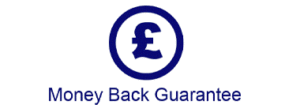Someone is using my trade mark. Why is this a problem?
There are a number of reasons why you should be concerned about trade mark infringement.
Financial
Businesses invest considerable resources to create a successful trade mark – in terms of money, time and creativity. They do this because the rewards can be so great. Anyone who uses your trade mark without your consent is freeloading – benefiting from your enterprise without making any commitment themselves – and diverting customers and profit away from you.
Reputational
One of the main functions of a trade mark is to inform consumers about the source of a product or service. Should another organisation use your trade mark and provide something of relatively low quality, customers may think that you are the supplier and lower their opinion of you accordingly.
Even if consumers are aware that you are not the supplier, they may be unimpressed if they feel you are not taking sufficient steps to protect them by tackling the trade mark infringement.
Operational
Trade mark infringement can provide an unwelcome distraction from a company’s core activities as it is forced to devote resources to responding to complaints from customers who mistakenly believe it is responsible for the inferior goods and services.
What are the first steps to tackling trade mark infringement?
There are a number of measures a company can take to prevent an infringement from occurring – or to strengthen its position should one take place.
Register your trade mark
The Trade Marks Act 1994 provides strong legal protection in the UK – but the marks must be registered with the Intellectual Property Office.
Make use of your trade mark
Should you not use your trade mark for five years after the date of registration (or for a subsequent continuous period of five years) a competitor may be able to have your mark deemed dead and take it over. As well as ensuring you utilise the trade mark for all the goods and services for which it is registered, you should also keep meticulous records to help combat any attempts to have it revoked.
Renew your trade mark
Under UK law a trade mark must be renewed every ten years to remain valid (with a grace period of up to one year).
Can someone else trade mark my business name?
There are different rules concerning trade marks around the world and so it is important that you are aware of the situation in the jurisdictions in which you are operating.
Can someone trade mark my business name in the UK?
If you have registered your business name then anyone using it without permission would be committing trade mark infringement – enabling you to take legal steps against them. In a case where you have not registered the name, however, the other business could potentially accuse you of infringement even if you have been using the name for longer. Companies in this situation are strongly advised to seek expert help as soon as possible.
Can two companies have the same name?
It is possible for two companies to have the same name without trade mark infringement having occurred. Two companies that are supplying completely different products to completely different customer bases, for example, may reach an agreement that enables both to keep operating.
What should I do if someone infringes my trade mark?
In view of the potentially serious consequences of trade mark infringement it is advisable to seek specialist advice. Trademark Eagle has a wealth of experience in this area and can advise you on the most effective and cost-efficient course of action.
What are the possible responses to trade mark infringement?
Agreement with the other company
Should the business using your trade mark be operating in a different sector you may agree (possibly with the help of mediation) that it can continue using the name providing that it does not subsequently begin providing similar products and services to you.
In the case of a company using a trade mark which you have not been fully utilising, you may decide to license the mark to them in return for a financial payment.
Cease and desist letter
This is a formal document sent to the transgressor which explains your legal rights to the trade mark and the way in which they are infringing it. A cease and desist letter will often result in the business agreeing to stop its encroachment. Should a legal hearing be necessary, however, a court may look unfavourably on a trade mark owner who has not previously tried to settle the matter with a cease and desist letter.
Interim injunction
One of the drawbacks to a full legal hearing is the length of time it can take – and the damage that can be done to your finances and reputation by the infringement in the meantime. Taking out an interim injunction – requiring the transgressor to cease using your trade mark pending the result of the case – can be an effective way of addressing this issue.
Internet enforcement
In cases where trade mark violation occurs on websites (e.g. Facebook) the internet platform may have a set procedure for you to follow if you wish to have the offending material removed.
Legal hearing
While the threat of legal action is often sufficient to persuade the perpetrators of trade mark infringement to respect your rights, sometimes it may be necessary to actually take the case to court.
As this is a complex area of law and the financial stakes are so high it is advisable to seek expert help to guide you through the legal process.
How can Trademark Eagle help protect my trade mark?
Trademark Eagle’s in-house team of legal experts are ready to use their knowledge and expertise to advise you on all aspects of trade mark infringement – including taking preventive measures; reaching agreements with transgressors; and, where necessary, launching strong, effective legal action.
Call: 01223 208 624
Email: enquiries@trademark-eagle.com
Or complete our online contact form

